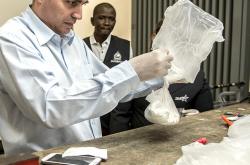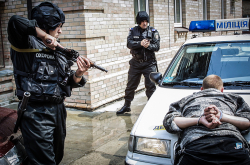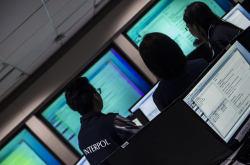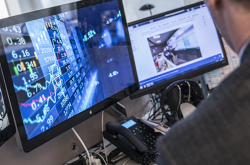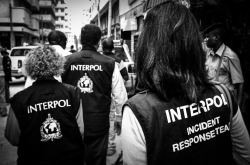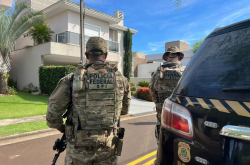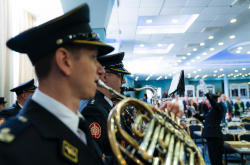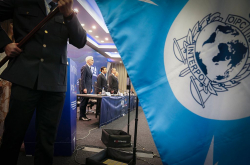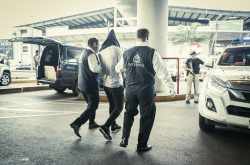BISSAU, Guinea Bissau – An INTERPOL team deployed to Guinea Bissau has been assisting national authorities investigate one of the country’s largest ever drug seizures.
Police have made 10 arrests following the seizure of some 1.8 tonnes of cocaine transported by sea to the country’s northwest. The suspects originate from Colombia, Guinea Bissau and Mali.

Including experts in drug investigations, cybercrime, intelligence analysis, and financial crime, INTERPOL’s Incident Response Team (IRT) was deployed at the request of Guinea Bissau’s authorities.
The team was also joined by officers from Brazil’s Federal Police and Colombia’s National Police, reflecting the international nature of the investigation.
The IRT’s focus has been to assist judicial police in Guinea Bissau in forensic drug analysis via INTERPOL’s Relief database, in addition to helping coordinate investigative leads with Brazil and Colombia, and extracting electronic data for analysis.
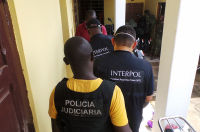
Additional INTERPOL capabilities supporting the investigation include global databases for fingerprints, nominal checks and stolen and lost travel documents.
INTERPOL Secretary General Jürgen Stock said: “This major cocaine seizure underlines the need for an international coordinated approach to tackle the drug trade, save lives and take money out of the pockets of traffickers.”
“This is where INTERPOL’s global network and databases can prove vital in connecting investigative dots across several continents, especially for officers on the ground.”
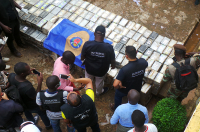
With an approximate street value of between EUR 60 to 80 million in destination regions such as Northern Europe, the latest seizure follows the interception earlier this year of another large drug shipment in Guinea Bissau. It highlights how investigations following major drug seizures can help law enforcement connect the dots to dismantle crime networks.
On-going support to investigations in Guinea Bissau is being provided by INTERPOL’s Criminal Networks sub-directorate, which coordinates drug trafficking operations across different regions worldwide. It also assists drug operations and investigations led by national or international agencies.

INTERPOL’s 24-hour Command and Coordination Centre (CCC) at its General Secretariat headquarters in Lyon, France, in Buenos Aires, Argentina, and in Singapore has also been liaising with the INTERPOL National Central Bureaus of the countries involved in the investigation to ensure the swift exchange of crucial investigative information.
Brazil, Colombia and Guinea Bissau are among 12 countries in Latin America, the Caribbean and West Africa which INTERPOL’s Project Crimjust supports to counter organized crime along cocaine trafficking routes, focusing on criminal investigations and judicial cooperation.
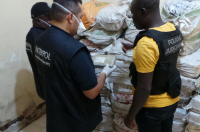
Países participantes
Noticias conexas





